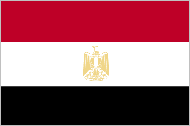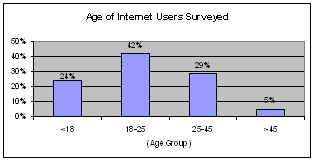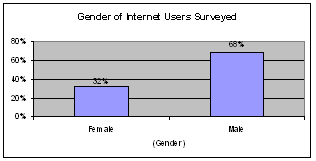 Egypt - Readiness for
the Networked World
Egypt - Readiness for
the Networked World
Networked Society
The start of internet service began in October, 1993 through a link
between
In 1994, a joint effort was started between the Egyptian Cabinet
Information, the Decision Support Center (IDSC), and the Regional
Information Technology and Software Engineering Center (RITSEC) to
increase internet awareness and usage.
Through this joint effort, free internet access and accounts were
provided to
By 1996, free access was replaced by an open access policy where private
ISP providers offered internet services for a fee. Although the services
offered were at reasonable rates, the Networked Society continued to be
challenged by socioeconomic problems such as poverty, high illiteracy
rates, and unemployment, ultimately impacting
People and Organizations Online (Stage 3)
Organizations had a jump start in understanding the benefits of
utilizing Information and Communications Technology (ICT) to enhance its
business processes. Since
the creation of the Information and
Many initiatives have been started resulting in opening more than 35
training centers across
A TACC resembles an internet café.
Computers, telephones, faxes, printers and internet connection
are provided in less fortunate communities.
These centers also provide training to private groups, low-income
groups and individuals about information technology.
IT clubs are similar to TACCs, but are mainly located in urban and
suburban areas with similar computer training and services.
The different IT clubs have established portals with relevant
information for each community.
These portals include information on news, employment
opportunities, education, health, etc. There are approximately 1,200 IT
clubs with future expansion plans to all Egyptian villages.
Although major projects have been started to close the gap between the
“haves” and “have nots,” there is still much work to be done as
evidenced by the current internet access penetration rates listed below.

Locally Relevant Content (Stage 3)
Locally relevant content is necessary to encourage and elevate interest
in the internet. It is
especially important to those individuals seeking answers to everyday
life questions. A major
obstacle for
At the international level, The Library of Alexandria is working on the
digitizing of one million books in Arabic to make available over the
internet. Another content
initiative was launched by MCIT in 2005 that focuses on developing
internet content in Arabic. TACCs and IT clubs have also aimed to create
portals with locally relevant content in Arabic.
The lack of computer penetration also affects the availability of
locally relevant content.
As users become more acclimated to accessing the internet, they are more
likely to become contributors of content.
As of 2005, due to high taxation levied against hardware and
software, PC penetration of all households in
Basically, the root of insufficient content is resources.
Whether, financial, technical, political, educational, or
cultural – resources are needed to develop and further enhance
Information and Communication Technologies in Everyday Life (Stage 3)
A digital divide is the gap between urban and rural communities where
there is a noticeable difference in information
and communication technology available.
In terms of communication tools in
Clearly opportunity exists for major improvements in ICT usage in
everyday life including urban areas.
In 2002,
The Free Initiative model was shared between ISPs and Telecom

A survey was conducted in October 2003 by MCIT of over 8500 households
of internet users. Some of the key findings included:
- The largest group of users was between the ages of 18-25 (42%).
- The internet is mainly used for work and gaining knowledge (48%).
- Over 68% of these users started using the internet after the “Free” Internet initiative.
- There is an average of 2 users per household.
-
Internet users who don’t have access are regularly hosted by households
with access 24%.
  |
Information and Communication Technologies in the Workplace (Stage 3)
In spite of
For example, MCIT signed an agreement with Cisco to train 1,000 ICT
students a year. Cisco
would later build two training academies for this purpose and would also
use the sites as their training facilities.
In May, 2001 the first phase began with Egyptian instructors who
were trained at Cisco’s
A major requirement for